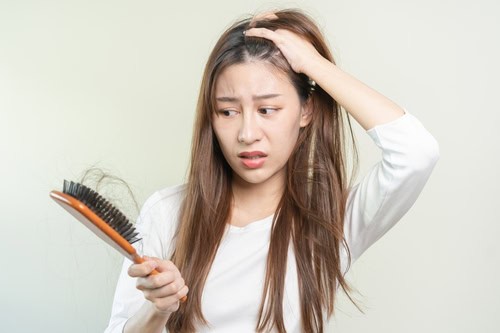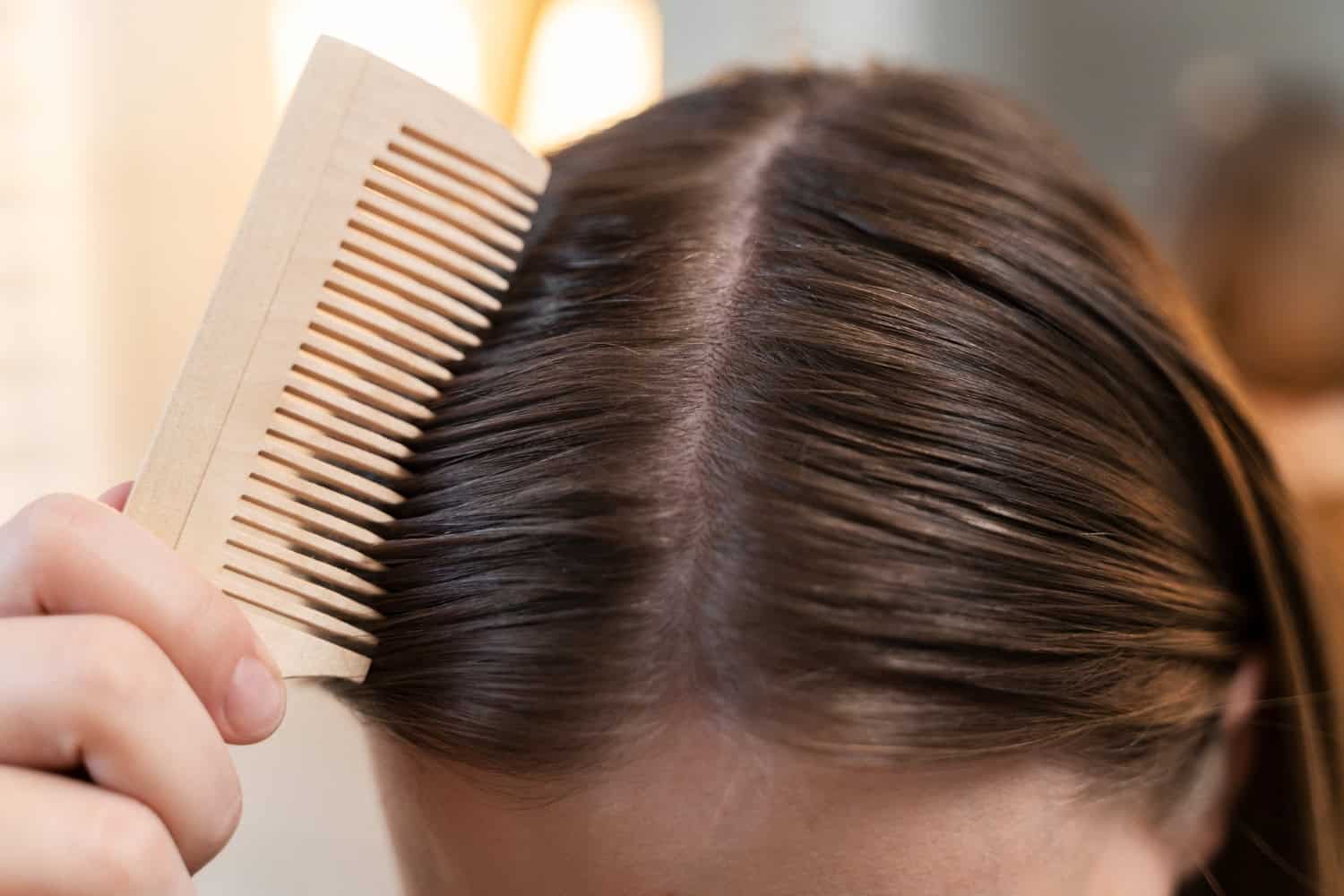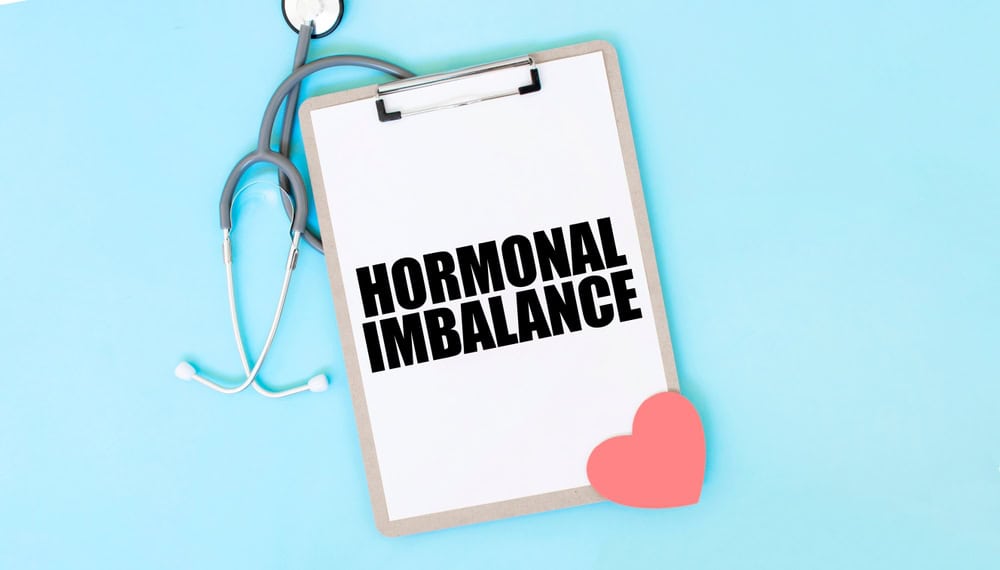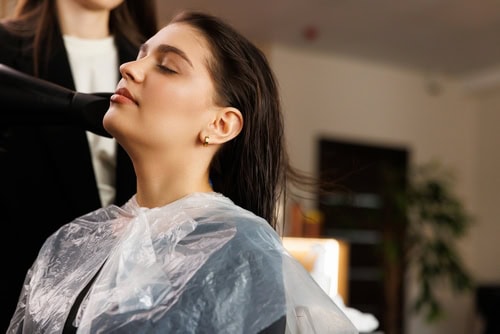
Hair fall can feel scary. You wash your hair and see strands all over your hands. You look at your pillow, comb, sink, and even your office chair, and think, “What’s happening to me?” I’ve been there too, and many people share the same worry. Hair isn’t just hair. It’s a part of how you see yourself, and when you start losing it, it can shake your confidence.
“According to Dr. Swati Mishra, Medical Content Expert at Tata 1mg, hair fall is common, and in many cases, it’s fixable. But it needs the right approach, not panic or random experiments. So let’s walk through simple, practical steps that can help slow down hair fall and create a better environment for healthy growth. These tips are based on common medical recommendations, but if you have sudden or extreme hair loss, it’s best to talk to a professional in person.
Here are seven doctor-approved habits you can start today.
1. Check Your Diet Before Anything Else

Your hair needs nutrients, not just shampoo. Think of hair like a plant. If the soil lacks nutrition, watering won’t fix the problem. Many people eat at odd hours, skip meals, or fill up on fast food. Then they wonder why their hair looks weak or dull.
Focus on protein. Hair strands are made of keratin, a type of protein, so your diet matters more than you think. Eggs, lentils, fish, milk, nuts, and seeds are easy to add. You don’t need to become a nutrition expert, but make sure your meals look balanced rather than beige.
Iron is another big deal. Low iron can trigger major hair shedding. If you feel tired, look pale, or get breathless easily, it may be worth checking iron levels with a doctor. Vitamin D and B12 also support healthy hair, and many people fall short without realizing it. When your body gets what it needs, hair responds.
2. Handle Your Hair Like it’s Fragile

Some people treat their hair like a rope that can survive anything. Tight ponytails, hot blow dryers, aggressive brushing, and long hours in the sun all weaken the strands. You don’t see the damage right away, but hair snaps, becomes thin, and eventually falls faster.
Be gentle. Let your hair air-dry when you can. Use wide-tooth combs instead of sharp brushes. If you love ponytails or braids, make them loose. Also, avoid hairstyles that pull hair backward too tightly. Your scalp isn’t made of rubber.
Heat styling is another hidden villain. Straighteners and curling irons strip moisture from hair. If you must use heat, try a low setting and do it rarely. Think long-term, not only today’s hairstyle.
3. Stop Trying Every New Product You See

Hair fall makes people desperate, and desperation leads to buying everything in sight. Oils, serums, onion juice, rice water, overnight masks, expensive shampoos, and mystery potions from social media. I’ve tried a few myself. Some helped. Some made things worse. The truth is, the scalp hates too much experimentation.
Doctors often recommend mild, sulfate-free shampoos. Not because they magically regrow hair, but because they prevent irritation. Hair growth depends on the scalp, so treat it like skin. If you wouldn’t use ten different creams on your face in a week, don’t do it to your scalp.
Also, oiling can help, but not drowning your hair in oil for half a day. Oil helps with moisture and massage, but it doesn’t fix internal deficiencies. Think of products as supportive, not life-saving.
4. Manage Stress Like it Matters (because it does)

Stress doesn’t just mess with your mood. It attacks your hair cycle. When stress levels rise, the body shifts energy away from hair growth. Many people notice heavy shedding two or three months after a stressful event.
You might not solve stress overnight, but you can reduce its impact. Walk, meditate, talk to someone, listen to music, or enjoy hobbies without guilt. Even ten minutes of slow breathing can calm your nervous system. Make sleep a priority. A tired mind affects the whole body.
5. Keep Your Scalp Clean and Healthy

A clean scalp encourages better growth. If your scalp stays oily, itchy, sweaty, or flaky, it can slow hair growth and increase breakage. Some people wash their hair every day, while others wait a week. Both extremes can cause trouble.
Find a rhythm. Two to three washes per week works for most people, depending on sweat and weather. If you exercise daily or live in a hot climate, more frequent washing might help. Don’t scratch your scalp with nails. It causes micro wounds that can scar over time.
Also, avoid heavy chemical treatments too often. Hair dyes, bleach, perms, and keratin treatments look nice for the moment, but repetition weakens hair roots. If you enjoy such styles, stretch out the time between sessions.
6. Consider Medical Solutions When Needed

Sometimes hair fall isn’t only about habits. Hormonal imbalances, thyroid issues, PCOS, postpartum changes, or infections can cause shedding. If you notice sudden clumps of hair loss, bald patches, or itching and pain, talk to a doctor instead of guessing. Blood tests can reveal hidden issues.
Some people may benefit from treatments like minoxidil or PRP, but these should only be used under proper medical advice. Hair loss isn’t always solved with home tricks, and there’s no shame in seeking help. You’d see a doctor for any other body change, so give your hair the same respect.
7. Don’t Expect Miracles Tomorrow

This may be the hardest part. We want fast fixes, but hair grows slowly. Improvements take weeks or months, not days. If you panic too soon, you’ll fall into the trap of switching products or routines constantly, which hurts progress.
Think long term. If you stay consistent, you’ll notice less shedding, stronger strands, and better texture. Take pictures every few weeks instead of checking the mirror every hour. Progress feels slow, but it happens quietly.
Hair fall can feel personal and emotional. It can affect how you see yourself, how you get ready in the morning, and even how confident you feel around others. But remember, hair fall is common. With the right habits, most people see improvement.
Take care of your body. Stay patient. Treat your scalp like skin. Don’t punish your hair with heat and tight styles. Eat nourishing food. Rest well. Be gentle, not desperate.
And if something feels off, reach out to a doctor who understands both science and emotions. You’re not alone in this, and your hair story can still have a happy, healthy chapter ahead.
FAQs
1. How much hair fall is normal every day?
Most people shed around 50 to 100 strands a day. It sounds like a lot, but it’s part of the hair growth cycle. If you’re seeing clumps in the shower, on your pillow, or when you run your fingers through your hair, it might be more than normal.
2. Can stress really cause hair loss?
Yes. Stress can push hair follicles into a resting phase, which leads to sudden shedding a few weeks or months later. It’s sneaky because you don’t feel the effect right away.
3. Will cutting my hair reduce hair fall?
No. Trimming only helps with split ends and makes hair look healthier. It doesn’t change what’s happening at the scalp, where growth happens.
4. What’s the best shampoo to stop hair fall fast?
There’s no magic bottle. A gentle shampoo that doesn’t cause itching, burning, or dryness is a better choice. Think of shampoo as a cleaning tool, not a growth treatment.
5. Does oiling really help?
Oiling can help with dryness and scalp massage, but it doesn’t fix nutritional or hormonal issues. If you like oiling, use a small amount and don’t leave it on for days.
6. Can hot water cause hair fall?
Very hot water can dry out your scalp and weaken strands over time. Warm or cool water is friendlier.
7. How long does it take to see improvement after making changes?
Most people need at least 8 to 12 weeks to notice a difference. Hair grows slowly, so patience is part of the treatment.
8. Should I take supplements?
Only if your doctor confirms you need them. Random supplements waste money and may not fix the real issue.
9. Is it normal to lose hair after pregnancy?
Yes. Many women experience postpartum shedding because of hormonal shifts. It usually improves within a few months.
10. When should I see a doctor?
If you spot bald patches, sudden heavy shedding, a painful or itchy scalp, or visible thinning at a young age, don’t wait. Professional help makes a big difference.
Recommended Reads
Don’t Wait Until It’s Too Late: Why Early Hair Fall Checks Can Save Your Hair
The Food You Love Could Be Harming You: Here’s How to Know
(The article is written by Mantasha, Sr. Executive, Clinical Health & Content, and reviewed by Monalisa Deka, Deputy Manager, Clinical Health & Content, Medical Affairs)